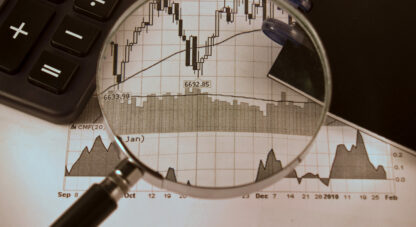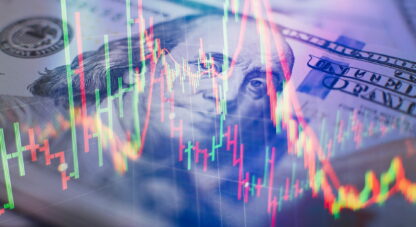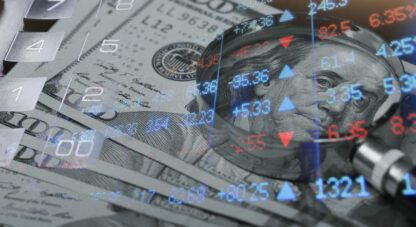About this week’s show:
- China the Dubai of 2012
- Decoupling Denied
- Far Eastern Buying of Gold Trumps the West
About the Guest: Dohmen Capital Research Institute Inc. was founded in 1977 by Bert Dohmen as an economic and investment research firm. Over the past two decades, the firm’s services have achieved the highest acclaim. They are the most highly respected and sought-after advisory services for investors world-wide. The firm currently offers 10 services. These include a long-term advisory service for the mutual fund investor, which helps investors avoid the need for a money manager or financial planner.
The McAlvany Weekly Commentary
with David McAlvany and Kevin Orrick
Kevin: David, you are just getting back from New York. You were in a round table discussion, I think they call it Breakfast Without Borders, that was sponsored by The Economist magazine, specifically, talking about worldwide competition for commodities.
David: Kevin, certainly China factors into that, and that will be a part of our conversation with Bert Dohmen today. What we did was to look at a layman’s taxonomy for commodities. If you want to classify them, in simple terms, you have the commodities that you need, you have the commodities that you want, and then you have sort of a hybrid.
The needs are the ags. These are the things that you consume, the agricultural commodities. You must have food, you must have a shirt on your back, and you must have shelter. These are the things that allow people to exist. Once this ties into industrial commodities, that has a very different, contingent need. If you have extra money, a wealth effect, extra disposable income, if you find yourself in a particular development cycle, then you see an increase in demand for these “wants,” but they are not the necessities of life.
Metals, specifically, the precious metals, fit sort of a hybrid, because you have a small degree of industrial demand, which we talked about a few weeks ago – jewelry demand, which is 40-50% of that market, and an investment, or savings demand, which is also a large component, driven by the asset class being non-correlated, being driven by negative real rates, being driven by currency concerns.
That was a part of our conversation, Kevin. It was actually a very, very intriguing panel, because we had a woman there who had spent 15 years as an attorney for the commodity futures trading commission.
Kevin: That was Susan Irvin, wasn’t it?
David: That’s right. She is now in private practice with Davis Polk in D.C., but she was actually Chief Counsel of the CFDC’s Division of Trading and Markets. She had a lot of things to say about the Dodd-Frank Bill and its influence into the derivative space, so that was interesting.
We had some interesting comments, also, from Stefan Heck. He is a director with McKinsey and Company. He was looking more at the elements within the commodity space dealing with sustainability. He had an interesting concept in terms of peak energy, not peak oil, but in terms of energy usage, very interesting concepts that were particularly relevant for the CEOs and CFOs of major Fortune 500 companies who were in attendance for this panel discussion.
Kevin: While you were in New York, of course, you were on Fox Business, and you did several radio and television interviews, but this audience was a closed audience, was it not? This was pretty much CFOs and top-level people. How many were in the audience?
David: Maybe 50-75.
Kevin: So it was a very exclusive round-table type of discussion.
David: It got started out with a conversation with Leo Brutze, the editorial director here in North America for The Economist Intelligence Unit. He did a great job explaining what The Economist sees as a 2012 prognosis. We think, in his terms, we will see a decline, and this is very consistent with the IMF’s recent report, as well as the World Bank’s recent report, of slowing growth in 2012, a decline, if you will, and a move in the direction of recession. Of course, he thinks it is going to be negative for the commodities in the short-run.
But I think everyone is fairly well convinced that China plays the larger role in the commodities space, whether it is short-term, medium-term, or long-term.
Kevin: Wouldn’t you say it is important to delineate the difference between monetary commodity, which is a gold commodity, versus the commodities they are talking about? They are talking about copper. They are talking about aluminum. They are talking about maybe even lumber and some of the other things.
David: That is why my comments actually dealt with commodity classification. Demand is relatively constant because people still need corn, wheat, and rice, and the basic staples of life. But there are the wants, which are optional, the consumer durables. Not everybody is going to go out and buy three new televisions this year. They might have done that last year. They are not going to buy a new toaster oven or microwave if they have just bought one, or if they cannot afford one. These are optional purchases, which do put increased demand pressure on those sorts of industrial commodities.
Kevin: And as China goes, like the United States for the last 40 years, the Chinese demand right now has been fueled by a debt bubble that has been growing, and that cannot last. This is part of the issue with those industrial or “wants” metals. We are really dealing with a development cycle. They have been transitioning from a largely agrarian culture to a more industrial culture, and they are also dealing with a major demographic shift, from people living in the countryside, to bringing people into the cities, and that is why they have had these major building projects.
These were some of the highlights from that. Of course, we talked about credit growth and a reversal in credit growth here in the U.S., as well as in the West, at this particular conference. But look at China, because China really is the 8,000-pound gorilla in the room when it comes to commodities. We engaged a conversation with Bert Dohmen, because it was very clear to everyone in the room there, at the Four Seasons in downtown Manhattan, that it was China. If you were going to talk about commodities, and if you have a prognosis for the commodities market, you have to talk about China.
Kevin: Just as your family, you have China bulls and China bears. There is a bull in the closet, and that is your dad right now. But, you are a China bear right now, at least short-term, because you are thinking that there is a slowdown.
David: I think that is the point to focus on, because it is in the short-term. I would say over the next 20 years, I’m a China bull, but over the next 20 months, I’m a China bear.
Kevin: So, don’t lose money on a long-term bet, playing it short.
David: Yes. As we approach the end of the Chinese New Year, February 1st, we may have a better indication of exactly what the politburo and the money mandarins in China will be doing to help stimulate the economy and to keep it from coming off the rails, so to say.
Kevin: Let’s get Bert Dohmen on the line.
David: Back with us today is Bert Dohmen. We have had the conversation many times in the past to cover both technical and fundamental issues, and one of the things that we want to do today is to look at China. In 2008 we had the global financial crisis and the subprime market was certainly a part of that. You could call it a U.S.-oriented problem, and then it spread throughout the world. Emerging markets provided liquidity relative to the domestic economy that was truly unprecedented. China had been growing at rates peaking out at about 14.2% in 2007 and they threw a trillion dollars into the market to try to keep things going, and in spite of the trillion-dollar intervention, things have declined. The growth rates, while still positive at about 8.9%, are contracting relative to where they were. We can only imagine what the landscape would be like without massive emerging market monetary intervention.
But we want to look at 2008 as a foreshadowing of 2012-2013. There are two areas that we have grave concern with. One is Europe, and certainly, the sovereign debt issue. The other is China. It is a less noticed issue, but one that we think could have grave ramifications for the global economy.
Bert Dohmen is with us again today to explore China, some of the things that have led to excess there, and why there could be some major issues coming into 2012.
Bert, thanks for joining us.
Bert Dohmen: Yes, it’s always nice to be with you, David.
David: As we see it, Bert, one of the problems was that those Chinese stimulus dollars, the trillion dollars that were made available to the market, went primarily into development schemes and infrastructure projects, there are some issues with that. We are beginning to see them bud, if you will. Maybe you could comment.
Bert: The stimulus in China, and you so right, this is the same type of stimulus that Japan has tried for the last 22 years, and we know, now, that this was totally ineffective. The Japanese stock market is still down about 80% from the 1990 high, so building bridges to nowhere, building all of this infrastructure, does not really bring a return on the investment. A lot of the bulls on China are talking about its reserves of $3.3 trillion, etc., therefore they will not run out of money. What they don’t realize is that these surpluses have been invested, by the Chinese government in infrastructure, first of all roads, railroads, bridges, etc. That money is in the ground. It isn’t there. They didn’t put it under the mattress.
They also put a lot of this money into the largest banks in China, which are all owned by the government, and it is estimated by some that the bad loans, the loans that are not getting their principle and interest paid, are up to as much as 50% of all loans. The total bad loans in the system might be as much as $2 trillion. That is money that has also gone to money heaven. It doesn’t exist anymore.
So China is really in a bad position right now. Their debt-to-GDP ratio is as bad as the countries in Europe, and as bad as the U.S. They are not the big colossus of the world. They are having big problems. What is happening at the same time is that the Chinese economy is going into a recession. I know that a lot of listeners would say, “Oh, you’re an idiot, you don’t know what you are talking about. They are booming. Their economic growth is 9%.”
That is GDP growth. It is a number coming from the government. The advertised GDP growth is always inflation-adjusted. Their inflation adjustment is currently about 6%. They take nominal GDP, they deduct 6%, and then they get 9%. But businesspeople in China, and consumers, will tell you that inflation is, at minimum, 15%. So if they would deduct the 15% from the 15% nominal growth, China’s economy, right now, is at zero growth. If you take a look at manufacturing numbers in China, they are now below 50. If you take a look at the purchasing managers’ index, it had the biggest decline since the low of the crisis in March of 2009. Manufacturing in China is already contracting, not expanding, but this whole story of the continuing strong economy in China is total fiction.
David: It really does have a lot to do with those stimulus dollars and the fact that, as we have seen slowing consumption, first in the U.S., and now in the Eurozone, of course there would be an impact in China, but that has largely been papered over by the stimulus measures, and we now have what you would expect. The money has run out, and the question is, will they re-queue? Will they spend another trillion?
Bert: Yes, but you see, all of this money cannot go against, or eliminate, market forces. We hear the bulls appearing on financial TV, and they always say, “Oh, the Chinese government, they can control this thing, they can engineer a soft landing.” No, they can’t. In 2008, the Chinese stock market was down about 70%. If the government was so all-powerful, would they have allowed a 70% plunge in the Shanghai index? I don’t think so. Would they have allowed the greatest destruction of the economic fabric in China? No, they couldn’t stop it. It was a global financial crisis. They could not stop it.
If we take a look at what has been happening here in the last six months in trade in China, a good way to look at exports to find out what is going on is to look at shipping rates. All the goods produced in China have to be shipped, on ships, to Europe, and to the United States. The shipping rates are down about 60%. Do you think the shipping companies would allow freight rates to decline by 60% if they had a huge amount of business and continuing growth? No. It shows you that these ships are going empty.
This has been going on now for six months. It started with the European crisis. The European crisis, the crisis itself, which means the fear that the European banking system would collapse – I think that is going to be eliminated for a while. That is going to be pushed into the background. It’s not going to happen. That long-term repo operation on December 1st in Europe, basically, eliminated that fear, because the European Central Bank said they would provide an “unlimited” – that was their wording – amount of money to the banking system, and that was it. That was the big bazooka.
But now comes the economic crisis. That means austerity across Europe. That means cutting back expenses, banks basically eliminating loans to the private sector. And it means a big recession. So China is just starting to see the repercussions of a deep recession in Europe, and then comes the deeper recession in the United States.
David: We look at the impacts to other areas based on a slowing, or even a collapse, in China. We look at commodity prices, whether it is copper, or molybdenum or steel. Talking to producers who are based in Europe but have major production facilities throughout Africa, it would appear that everyone is waiting for this Chinese New Year to get past us. As soon as we get into February, we will know something about the politburo and their decision as to how they will stimulate, if there will be a return to commodity purchases. Otherwise everyone in the industrial commodity space is palpably afraid of what will happen in terms of total demand, as in the industrial space, we are talking about a country that consumes between 30% on the low side, as high as 56% on the high side, depending on the commodity, but that is a global consumption of these commodities.
Bert: Yes. You see, capital investment in China is about 60% of GDP. In the average industrialized nation it is 8%. Their capital investments are about 8 times higher. This is the government putting money in. The consumer is still diminishing as a percentage of GDP. About six years ago China said, “We are really going to focus on getting the consumer part of the economy moving upward.” At that time it was 45%.
David: Yes, 45%. Now it’s 10 points lower.
Bert: That’s right, it’s 34% right now, so it has gone exactly the opposite way of what the government had wanted. Here, once again, is an example that this government is not all-powerful. Let’s face it, it is a communist dictatorship. When has a communist dictatorship ever been so efficient in controlling the economy? It just isn’t. People forget that.
David: I think it was in a past conversation that we had, Bert, when you had mentioned that as an economy comes on stream, as it is going from an underdeveloped state to a developed state, there is a sense in which a command economy can work. But once you get past the catch-up phase, then you do rely on the tenacity, the creativity, the ingenuity, that comes from a market-driven economy, not from a command economy.
What we have seen in the last decade or so, in terms of growth, is in that catch-up phase. Do you feel like that is still a fair comment?
Bert: Exactly, you are so right on that. We did a special report called, The Coming China Crisis. It is 102 pages, available on our website. We did that a few months ago. One part of the report maintains that what we have seen in China is, basically, that the boom has been based on taking Western technology that has taken the West 100 years to develop, and they have had it given to them. They don’t even pay for the technology. If you want to do business in China, you have to give them the technology, free of charge.
But now they are getting to the point where they have caught up, and now they have to depend on their own ingenuity. They are very smart people. But you need a free economy, and you need a democratic form of government, for this ingenuity to exert itself, and they don’t have that in China yet. I am sure that some day they will. The genie has come out of the bottle in China, and the government – these older guys that were brought up as communists – are dying off, so biology is in favor of a freer economy. But they now have to depend more on their own ingenuity, their own inventions, and their own technology.
That is going to take a while. Everybody agrees that over the next 20-30 years China will have tremendous growth. But even in the best of times, for instance, the age of the railroads in the United States, investors really didn’t make any money on the boom in the railroad business when the railroads were being built out to the West Coast. During that whole boom in developing the Western United States, stock market investors really didn’t make much money on that.
David: You mentioned Chinese equities, and of course, they had a run prior to 2008, a very significant run, and then followed up by a collapse of 65-70%. We are still only about halfway to those previous peaks. In other words, the recovery has been a non-recovery, basically, it hasn’t gone anywhere. Is there anything that we should be reflecting on that? There is this idea of decoupling and certain writers have said, “Listen, they are going to lead the charge, they are going to be the largest economy and they will surpass Japan as number two, and now it is just a question of time before they surpass the U.S. as number one. Can we look at the Shanghai Exchange and say perhaps there is a different story being told?
Bert: I think we should not correlate economic activity with stock markets. The companies in China are really in a pickle right now. Their profit margins have been squeezed so much that the small to mid-sized enterprises, the SMEs, aren’t even making any money. They cannot get financing from the banks, so they are forced into small finance companies which are really run by the party officials. They are paying 30-130% interest on these short-term loans, just to keep their businesses open and to be able to fulfill their contracts. They are in such a profit squeeze. Labor rates have gone up 40% over the last two years. That is an incredible increase. Then they have had the increase in raw material prices. The small to mid-sized enterprises are not making money in China. On top of that, many companies in China have made money by speculating in the stock market with their operating cash. That is real nice when the stock market is moving up, but when it is moving down, that kills you. That leads to bankruptcy. That is why we have had so many accounting frauds in Chinese firms. They are doing everything they can to stay alive, so they cheat on their accounting.
What the Shanghai index is telling you is that it is really in a bear market, the bear market rally we had is over, and now the market is going down. It reflects reality. The smart money knows what is really going on underneath the surface.
David: They are now the number two economy, but it appears they have got plenty ahead of them. It was once said that if Asia sneezed the world would feel it, the idea of the Asian Contagion, going back to the 1990s. What would you think of a second rendition of an Asian Contagion? Do you see that as a possibility over the next 24 months?
Bert: Yes, you know, David, over the last three years we have heard all the beautiful stories about China, that China is basically pulling the whole world out of this crisis that we had in 2008 and 2009. Well, that story is reversing as we speak, so suddenly, all the reasons for buying raw materials, and companies that benefit from an economic boom in China, are going to be out the window – the Caterpillars of the world, and the heavy construction machinery, and so on. Komatsu, which is the competitor of Caterpillar, reported last week that they are having trouble getting paid from China. These are the developers in China, and they are going bankrupt. The big developers are cutting the rates on their new condominiums by 40%, and more, just to move them. There are 60 million new apartments standing empty. It is absolutely incredible. They have 40 billion square feet of office space under construction. 500 skyscrapers are in construction, and not a tenant to be seen. This is what China is facing right now. This is not going to be something that will be resolved in a year or two, and it will infect the globe. Our position, as we said in the China Report, when the China crisis finally becomes recognized, is that there is going to be a tsunami throughout the financial world.
David: There are similarities to Dubai, where there is a virtual ghost town of skyscrapers, gorgeous designs, by the way, but all empty. It was very eerie driving through Dubai in 2008 at night and seeing not a single light on. That is because they had not run the wires. Again, the same issue – no tenants. But you are really equating this to saying, yes, when you have a credit boom, it generally is followed up by a credit bust.
Bert: Always. Ludwig von Mises, of the Austrian School of Economics, wrote that. I showed that slide of his quote at the seminar this weekend. We had a three-hour seminar, as you know. You were kind enough to announce it to your own clients, and a number of them were there, and it was really nice meeting them.
We discussed exactly that. Many of these new apartments were built even without bathrooms, or without bathroom fixtures. In the West, when we have a surplus of townhomes or houses, eventually they will be bought. Maybe it will take 3-4 years, but over there, they can’t be bought. In 3-4 years they are going to be falling down. This is not something that is durable. It was just built as fast as they could.
There was one person at the seminar who just came back from China, and he said, “We drove, literally, for several hours on this one highway going out of town and into the countryside, and here were all these buildings – building after building as far as the eye could see – all brand new apartment buildings, not one person living in them.”
David: It is certainly a Potemkin Village on a grand scale.
Bert: Yes.
David: There is the idea that certainly there is progress. I remember going up to the North Korean border when we were in South Korea many years ago. They have all these buildings just on the other side of the border, where the music is playing and they actually turn the lights on. It’s an entire city which is a façade. No one lives there. They want everyone in the south to hear the happy noises and hear the economic activity, and see the bright lights at night. And it is only a game, but it does point to something that is an even deeper issue, which is, the system is so broke internally that they have to resort to that kind of chicanery.
It is interesting, Bert, we have the world kind of sitting in two camps right now. One sees recovery being just around the corner, and later this year we will see positive earnings, and that will warrant a massive move higher in equities, ergo you should buy assets while they are cheap.
The second group would say that, no, there are reasons now to be concerned, but we do believe that central bank activity will be very active, ergo buy stocks before the announcement of quantitative easing. So we have the investment community today which is piling into equities with the idea that central bank activity will be sufficient to keep this economic tsunami from hurting them. Is that advisable? What is your position?
Bert: As you know, for every seller there has to be a buyer, and the other way around, and no one has the same opinion as everyone else. There is never a uniformity. My own view is this: I think the rally we have seen since October 4th, which was the low, is one of expectations – expectations that Europe will get its act together, that Europe will once again kick the can down the road. This LPRO that they did on December 1st was, basically, pushing the can three years down the road. And of course, after the three years are over, the loan has to be reversed, and they can extend it another three years.
But, eventually, it won’t be enough money, and Christine Lagarde, the head of the IMF, said that today in Europe. She was speaking to a group in Germany in the parliament, and she was warning of a collapse of Europe which will bring about another great depression in the entire world. She warned about that. She said, “We have to raise much more money,” she is looking at a trillion dollars, “in order to build a kind of wall around the system to prevent the collapse, because more problems are coming with Italy, Spain, Portugal, etc.” We haven’t even heard about Eastern Europe except for Hungary, but all of Eastern Europe owes over a trillion dollars to the Western European banks, and nobody has really even talked about that, so there are huge problems over there.
She is a very smart lady, and it was actually refreshing to hear someone in her position telling the facts, because usually these people always say everything is hunky-dory. She is really saying it the way it is. There is a global depression threatening. That doesn’t mean it will happen, but it is threatening, and if the politicians don’t get smarter, it will happen.
Only the free market can resolve the situation – free people. As long as the governments of the globe continue to put up these impediments to people starting businesses and having a productive society, everything will shrink. We see this in Spain. For their young people, in the age group of 18-28, or something like that, the unemployment is 44%. That is depression.
But why is that? They have a law that anyone that a company lets go has to be paid one year’s severance. If a company suddenly sees a big downturn in its business, and they have to let 100 people go, they have to come up with a check to pay 100 people one year’s worth of salary in advance. They don’t have the money, so they can’t do it. If they do it, the officers of the company go to prison. Obviously, under these conditions, no company will hire anyone.
David: It is interesting, because that kind of an unemployment rate among youth – we have seen over 70,000 political “incidents” in China, per year, for several years – minor things, not all violent, but certainly small protests, gatherings, people saying, “We don’t like the corruption, we don’t like the fact that the local party boss is making out like a bandit and meanwhile we are still having a hard time feeding our families.”
It seems as though if austerity defines the beginning of 2011, perhaps 2012 will be defined by popular anger. Would you see that as a trend in Asia, or not even limited to that, but maybe a global issue?
Bert: Global. That has been my point since the beginning of 2011. One year ago I said, “We are going to see increasing violence, upheaval, people rioting in the streets, and it will be global. Then came the Arab Spring, as they call it. I think it would best be called the Arab Winter, because it is going to be a disaster for the Middle East. The radicals will take over. The entire globe is now in an uproar. Sometimes you wonder, “Is this really coincidental? Is it a sign of the times? Is it the long-term pendulum swinging to one side?” This is so much like the 1930s. We know now what came out of the 1930s. It was not very good. We got a bunch of dictators and over a 100 million people killed around the world by their own governments. This is the kind of thing we could look forward to.
David: Look forward to, or just anticipate? We see major changes ahead – and apparently so do a few of the party bosses. In your China report, a great report if I might say so, a 102-page report, one of the things you mentioned is that over the last decade or so close to 120 billion dollars has been taken out of the country by the mucky-mucks, the folks at the very top of the food chain in China. Perhaps it is a clue to us that this is a temporary thing, almost like Glasnost and Perestroika within the Soviet regime. There were periods of openness to Western ideas. They wanted to expand and bring in Western consultants to fix things and we poured in money. And that is, in fact, what has happened over the last 20-30 years in China.
But there is nothing to say that things cannot turn around, and I mean negatively, from a political standpoint, if, in fact, we see things deteriorate financially and economically, and we begin to see social unrest that cannot be controlled or contained, don’t expect that there will be regime change in a place like China. Expect the regime to dig in its heels and get pretty mean and nasty. Maybe that is a part of what you are implying.
Bert: Yes, they have, I don’t know how many thousands of cameras in China in the public squares, etc. I remember last year we wrote about it in our Wellington letter, that the government of China had ordered 500,000 closed circuit TV cameras from Cisco, and they are going to be put in the public squares. As soon as they see a group of people gathering, immediately the police come and break it up. They cannot allow a small group of 10-20 people to develop into several hundred, or several thousand, people. You are so right. We saw that in Tiananmen Square. They don’t fool around. They will not tolerate a revolution, and everything will be done to eliminate the revolutionaries. It will happen. It’s really sad. And you just wonder, when is it going to hit the shores of the United States?
David: Do you think it will? Do we have something to be concerned about there?
Bert: Well, we have 46 million people right now on food stamps, so that kind of calms the water. At least the people aren’t starving. But after a while, won’t people get tired of not finding a job? You just wonder, how much will people accept? I really don’t know. I don’t have the answer.
David: On the one hand, we have bread, perhaps on the other, we will just have to introduce circuses, and that will keep the people happy for a longer period of time. But these are still things that are end-of-Rome type stuff. They aren’t the kinds of things that portend a hopeful tomorrow, and a return to quick growth.
Bert: You see, we don’t have the limitations of many of the European countries. Their limitation is money. The government can’t just fabricate the money out of thin air, the way the Federal Reserve does.
The Federal Reserve is different. It can create an infinite amount of new money out of thin air, and they did this, as we know now. The original number, the official number, was that they created $3 trillion for this financial crisis that we had. Then Bloomberg went to court and, over the objections of the Federal Reserve, the court said, “No, the Federal Reserve has to disclose these numbers.”
The first number that Bloomberg came up with was $7.7 trillion, instead of the $3 trillion. Then that amount increased. They started going through more of these 21,000 documents that the Federal Reserve had to deliver, and it came out to about $18 trillion. Then we heard reports about $29 trillion that was fabricated by the Fed. The Federal Reserve said, “No, that’s double counting.”
Whatever the number is, it is a huge amount of money that was created out of thin air. It used to be that they were limited in Washington by the amount of money that they could print on the printing press. Nowadays it is all cyber money. It is created on the computer. They just add some zeros to the numbers, and so you can really create this infinite amount of currency and money at will. Therefore, gold and silver are absolutely a must investment for the next ten years.
David: Perhaps you could contrast, though. We talked about China and an implosion in China that does not communicate a positive message for industrial commodities. We may, in fact, see basic food commodities continue to rise in price, as a reflection of a greater number of dollars or currency units the world over, chasing a stagnant amount of goods. What is the difference between raw materials weakness and precious metals strength? Where do you see those two diverge?
Bert: I look at commodities in three different areas. One is food. We have to eat, we have no choice. Therefore, we are seeing fantastic supermarket inflation, and many people, unfortunately, especially men, don’t grow grocery shopping. I make it a point, at least once a month, to go to a supermarket and see what is happening to prices, and it is just absolutely incredible. I have seen price increases of 30-40-50%, and more, in just six months. This will continue.
The other area of commodities is raw materials – iron ore, zinc, aluminum, etc. They will be very dependent on economic activity. As economic activity declines, the prices will decline. Copper – many people call it Dr. Copper because it’s supposed to be a good indicator of economic activity, but it really isn’t because it is manipulated by China. The government of China knows that everyone looks at copper, so they buy a lot of copper. I think imports of copper in December into China were at a record high, after having been in a slump for a number of months, but the Chinese government says, “Okay, we will buy a whole bunch of copper and then everybody thinks everything is wonderful over here.” That’s the second area.
The third area is a store of value commodity, and that is gold and silver. I think, more so, silver, although a lot of people say, “Silver is an industrial metal and therefore it will decline when demand declines in a recession.” But, you also have to look at the other side, and that is that silver is the affordable store of value. Gold, at $1700 per ounce, is not that affordable for most investors. If everything gets really bad, as in the Weimar Republic, you can’t very well buy a loaf of bread with a gold coin, but you might be able to get that loaf of bread with an old silver dollar. This is what is important.
I remember that from Germany. After the war, after 1945, the German currency was worth nothing, and the grocery stores were virtually empty, but if you had one of the old silver coins, you went into the back room, and there were groceries, and there was food that you could buy, but nobody wanted to accept the paper currency. I think silver actually has a good story, at this point.
David: I would agree. It is interesting, the old bags of dimes, quarters and 50-cent pieces, 90% silver content, they are trading with virtually no premium today, and at times, going back to 2008, where demand was very high for those silver bags, the premiums on those bags got to even 20-25% on the spot price. Today, it is right at spot. There is no premium in terms of local domestic demand, and prices are significantly off their peaks, about $32 or $33, anywhere from, I’d say, $28 to $32 makes sense, maybe even $33 or $34 on the high side, if someone is taking an initial position.
Yes, this is an interesting period of time, where there are themes of deflation on the one hand, and we are talking about a tremendous amount of de-leveraging if there is a collapse in China. But as you say, a store of value. How do you preserve what you have in a world where all of the currencies are fiat-based since 1971? This is the first time in world history that we are on an entirely fiat-based system. It doesn’t matter if you are European, it doesn’t matter if you are an Asian, it doesn’t matter if you are an Australian, or a Canadian, you are looking at your own domestic currency, and it is backed with paper promises, it’s backed with political promises, it’s backed with potential tax revenues, but that is the only good part. The bad part of that is that it’s just coming from us to support the currency, so nothing really good there in terms of just the old reliable store of value.
Let me ask you a question, because this is something that many have speculated on. Is there the possibility of returning to a gold standard? What would the Federal Reserve have to become, or would it just simply have to go away, or the gold standard or a discipline like it, to come into our money system again?
Bert: This is a very good question, something that has been debated since the last gold bull market in the late 1970s. I think it will take an absolute crisis of confidence, where people will not accept paper money, and then the government will have a choice. Do we force people to accept paper money? Do we have prison sentences of people who use something else as a medium of exchange?
If you read the history of the last several thousand years, you will see that whenever a country exceeded spending to buy what they produce with coins, they started cheating on their gold coins. They put less and less gold, and more and more tin or zinc or other metals into it, and then pretty soon people would not accept the money. Then the countries would issue a law that under penalty of death, if you didn’t accept the official money you would be executed. That is one alternative that governments can take, though it’s not a very good one.
The other alternative is they may say, “No, we can’t do that. We have to re-instill confidence in our currency.” And that means a gold standard. When they fixed gold at $35 an ounce at the Bretton Woods agreement in 1944, they took the monetary base of the United States. If we took the same measure today, the price of gold would have to be fixed at, I think, about $9,200 an ounce. I think, eventually, that is probably what will have to happen. It’s not going to happen this year or next year, but eventually.
The problem is, we are now riding up an exponential curve. This is going to be a parabola, and many people don’t agree with that view, but when you take the power of compounding, take any compounding curve, it is unsustainable, until it finally collapses.
There is a good example, of compounding, just at 1%. In Egypt, 3,000 years ago, let’s say they had 3 million people. If the population in Egypt had compounded at a 1% annual rate, Egypt right now would have 27 trillion people living there – trillion, not billion. That’s an amount of people that you can’t even imagine. That’s just at a 1% rate. Do you know that the global debt is now running at a compounded annual growth rate of 11.2%? Eleven times higher. This is unsustainable. We are now reaching the point where the parabola is accelerating upward.
Take, for example, a pond. One day you have one lily there, and the lily reproduces, and doubles every day, until the entire pond is covered. Do you know that two days before the entire pond is covered, only 25% of the pond is covered, 75% is not? This is what happens when compounding just really starts accelerating, and this is happening across the globe. What they are doing in Europe right now is going to be accelerating this compounding growth rate, but then they are going to bail out Greece, they are going to fabricate more artificial money – billions, hundreds of billions, of dollars – and it will not resolve the problem. It will just accelerate it.
David: It appears that the debt problem and this credit excess is at the root, and as you said when we started our comments today, many of these things would be solved by the markets, but the market solution is not necessarily a pleasant one, because there are no favorites in the market. You come with your own merits and if you don’t have them, then it can be scathing and painful. That’s the nature of bankruptcy.
Bert: That was the message of von Mises. He said that if there is a credit bubble that burst, a credit bubble produced by the central bank, and it burst, and it is not allowed to cure itself, meaning defaulted loans, etc., and they try to prevent that by creating another bubble, that leads to much greater pain in the long run, and this is where we are. They chose to intervene in 2009, just really pump it up, step on the accelerator, fabricate trillions of dollars of artificial money, so they chose the route that von Mises said should not be taken, and it will lead to a much greater catastrophe down the road. That’s where we are.
David: We hope that with that greater catastrophe comes some sanity, or a return to sanity, as people try to hash out what is responsible for the demise and hopefully it is not capitalism that is blamed for it, because this kind of intervention is anything but capitalism. Cronyism, certainly. Crony capitalism, if you even want to borrow the word, but I think that is getting dangerously close. The free market has not been allowed to operate and function the way it would ordinarily, for probably 30-40 years, central bank intervention being there at every downturn to prop things up and move it forward, eventually eliminating the business cycle.
Bert: David, you are talking about hope, and as we all know, hope is not a very good investment tool. There is a study I just read this weekend that says that they found that when conditions worsen, people demand more governmental interference in the free market system. I think we have reached that point where everyone is getting poorer, and now people will look to the government for their salvation.
That means more intervention in the free market system, which worsens the problem, it doesn’t make it better, so the pendulum has gone to the wrong side, and I think it will take a long time, and hope is not good enough. I think it needs people taking an active role in what is going on and educating themselves about what is going on. There are a lot of smart people in this country, but there are a lot of people, also, that don’t think it is important to know what is going on, and they trust their politicians to do the right thing, and maybe that is not the right way to go.
David: We will see that trust tested again as we come into 2012 and we will see if it is actually warranted as we move into 2013 and 2014. Regardless of the party, each has an uphill battle, and we wish them the best, but, realistically, don’t think that either party will have many solutions, given the gravity that they are now having to fight. It is a natural force, and trying to suspend these natural laws is quite challenging.
Bert: Absolutely. We painted a pretty gloomy picture here, but this is not something where you go out now and you short the heck out of the stock market. It doesn’t mean that at all. I think, if you look at the shorter term, there is a lot that can be done by the government. Let’s face it, they make the rules. They have the printing press. They can do a lot in an election year.
There’s a compounded chart, since 1928, of what has happened in the stock market in an election year. This is very important. You can take all of these election years and put together every month what the performance is, add it up, and what this chart shows is that from now, for the next five months, the market should be going down. And then in the period of five months before the election, the market soars upward.
That is what all presidents do in order to get re-elected. They love their job, not because of the salary, but I guess it has good fringe benefits. This is something that the bears should be aware of. There is going to be a big rally sometime this year, in the stock market. There should be a correction first, but don’t go overboard on the short side. That is my view at this point, and those views are always ready for a revision when the technicals call for it.
David: Well, good, we will look forward to having you back on the program, as things develop in China, and certainly as the technical picture changes. Thanks for joining us again today.
Bert: Thank you very much, David. It’s always a pleasure to be with you.
Kevin: David, as always, it is a great conversation with Bert Dohmen and I know that you are taking away an awful lot of information right now from the other people who were on the panel there with The Economist, as well. But there are a couple of key indexes right now that are sort of proving Bert’s point that things are slowing down.
David: Certainly, his mention of the Baltic Dry Index, and the Harpex Index, as well. These are two separate measures of what it costs to move goods from one place to another. They are in extreme decline, and you wouldn’t see that in the context of a robust recovery in exports. So the real question, and this goes back to a conversation we had with Stephen Roach over a year-and-a-half ago, is, “Can they make the transition from being externally oriented in their economic growth generation, or are they moving toward an internal consumption-oriented society and economy?”
Kevin: It’s true. China has been a model that has worked very, very well, as long as the West has worked very, very well. We worked very well because we could borrow money, and we spent our borrowed money over there. As Bert said, they used our technology. They don’t invent things, themselves. They used our technology, they used our borrowed dollars, and they recycled them back. But we aren’t borrowing right now, we aren’t spending right now.
David: And guess what? They are not actually moving toward a consumption-oriented society right now, either. At least, the statistics don’t bear that out, moving a decade ago from 45% of their economy being oriented toward internal consumption, to now 34%. That is a critical thing, because that is the transition they need to make. As you look at this major migration from the countryside into the cities, there is only one thing that they would be moving to the cities for, Kevin, and that is, jobs. They don’t have an expanding work force, again, that’s either service-related, to service themselves, or export-related, that is, servicing Europe and the United States.
These are the issues that we have in play. We don’t think they have what it takes. They may be anticipating this internally oriented economy, but that could be 15-20 years out. Our question, and I think Dohmen’s, was well asked. What happens to the infrastructure that you have built as it goes unused over the next 10-15 years? They are already having problems with their rail system, and it’s not even a year old.
Kevin: David, this reminds me of a water-skier. A water-skier is not powering himself. He may be flying through the water at 40-50 miles an hour, but it’s because there is a boat that is pulling him. We have been the boat, America and the West, for China, and we have been pulling them, and everybody has been saying, “Look at China. They are going 40 or 50 miles per hour. Look at that. They are staying on top of the water.” But until they can become the boat, themselves, they really cannot have a self-enclosed economy that can support itself. Is that right?
David: That’s correct, and I think one of the things that we can walk away with as we close the show today, Kevin, is this social dynamic where people are buying gold because they know that they need to take care of themselves in the future, and they don’t have an adequate safety net. They don’t have a social safety net, whether it is a health care, or health service-related safety net, or even something like social security, like we have here in the United States.
Kevin: Right, the Chinese don’t have those things that actually have been promised to Americans, that are questionable here in America now, but for them, they never had it in the first place.
David: Will there be the introduction of some sort of a social safety net within China that will unlock the savings of the Chinese, which are currently going into gold, and frankly have no reason to stop, in the context of an understated inflationary problem in the country? Will there ultimately be a transition to internal consumption on the basis of a reorientation of savings because of what the government has put in place in terms of their spending programs, to the benefit of society, like our social security programs and things of that nature?
That’s what we can look forward to at the end of 2012, to look back and say, “Was there anything fundamentally changed that was impactful to that social fabric and the dynamic that has people knowing that they have to take care of themselves, and thus, over-save, because they don’t have any other way of taking care of themselves in the future?
Kevin: But what you would say for now, Dave, for the investor who is looking at China as an engine of growth? Would you say, “No, keep your money at home, let’s see what happens, and we’ll have guests on that will continue to cover this subject matter over the next year”?
David: That’s correct, I would say we’ve just got to keep our eyes and ears open.
















